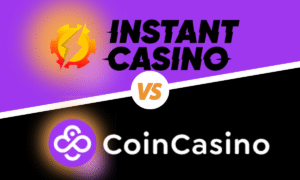Even as bitcoin gains traction within the investment community, bitcoin ETFs are still a pipe dream. Meanwhile, blockchain ETFs have already made their debut in mainstream markets. In mainstream parlance and news reports, the terms bitcoin and blockchain are used interchangeably. As a result, several investors often confuse blockchain ETFs for bitcoin ETFs.
To understand the difference between bitcoin ETFs and blockchain ETFs, it is important to know the difference between the instruments they track. Bitcoin is a cryptocurrency and blockchain is its underlying technology. That distinction becomes important when considered within the context of investment instruments.
Even though bitcoin futures are already offered on the country’s two leading exchanges, the cryptocurrency’s regulatory status is still unclear in most jurisdictions. It is embroiled in multiple regulatory battles and is under scrutiny for its role in facilitating criminal activities such as money-laundering.
On the other hand, blockchain has been “blessed” by the likes of JP Morgan CEO Jamie Dimon and is being adopted by a wide swath of industry. It is neither banned nor under scrutiny by regulatory agencies.
There are already four blockchain ETFs trading in regulated markets. All four were launched in 2018 and have a combined $278 million worth of assets under management, as of this writing. Their expense ratios range from 0.70% to 0.65%.
How Are Blockchain ETFs Different From Bitcoin ETFs?
Blockchain ETFs primarily track the stock market prices of companies that have invested in blockchain technology in their fund. Because blockchain is a technology, it is not tied to a specific company or product.
“Bitcoin needs blockchain but blockchain doesn’t need bitcoin,” said Christian Magoon, CEO of Amplify ETFs, the largest ETF focused on blockchain.
The blockchain universe of investments is large and not restricted to a particular sector. For example, IBM has formed a partnership with shipping line Maersk to implement blockchain in the freight industry. Similarly, e-commerce company Overstock has investments in blockchain through its Medici Ventures and tzero digital coin exchange. Naturally, these companies are favorites with blockchain ETFs. For example, Amplify ETFs’ Amplify Transformational Data Sharing ETF (BLOK) and Reality Shares Nasdaq Nexgen Economy (BLCN) have included both companies in their ETFs.
Most bitcoin ETF applications before the SEC have proposed tracking the price of bitcoin through futures contracts being traded on Cboe and CME. In this model, ETFs track the price of bitcoin through ownership of futures contracts.
However, the SEC has cited “liquidity and valuation” problems with the ETF proposals and rejected them. Bitcoin futures contracts currently have low trading volumes and liquidity. As a result, the futures follow spot exchange prices, which are volatile, as opposed to leading them.
In their current form, blockchain ETFs are relatively less volatile as compared to bitcoin ETFs. This is because they are not exposed to the volatility of bitcoin’s wild price swings.
That said, blockchain is a nascent technology and does not currently constitute a large market. As such, the stock prices of companies being tracked by the ETF are more susceptible to factors that do not concern or affect blockchain technology. When they are launched, bitcoin ETFs will be directly affected by policies of regulatory agencies regarding bitcoin and cryptocurrencies.
Will Bitcoin ETFs Be Available Later This Year?
Several reports towards the end of 2017 hinted at the introduction of bitcoin ETFs later this year. The timeframes for introduction ranged from the end of this quarter to this summer. But the road leading to bitcoin ETFs is a rocky one. As mentioned earlier, the SEC has already rejected several proposals relating to bitcoin ETFs. (See also: NYSE Bats For Bitcoin ETFs.)
At the World Government Summit recently, Adena Friedman, CEO of Nasdaq, said it might be “too soon” for bitcoin ETFs in the United States. According to her, the underlying markets that determine bitcoin price are unregulated and may not necessarily be fair to all participants. “And that means that there may be price distortion,” she said.
This price distortion may result in an unreliable basket of prices for the ETF. Friedman did not provide a timeline for the launch of bitcoin ETFs in the U.S. market and said it was “prudent for regulatory markets to take a “Watch” mode and learn as much as we can about it.”
Investing in cryptocurrencies and other Initial Coin Offerings (“ICOs”) is highly risky and speculative, and this article is not a recommendation by Investopedia or the writer to invest in cryptocurrencies or other ICOs. Since each individual’s situation is unique, a qualified professional should always be consulted before making any financial decisions. Investopedia makes no representations or warranties as to the accuracy or timeliness of the information contained herein. As of the date this article was written, the author owns small amounts of bitcoin.







More Stories
SafeMoon Space – THE NEXT BIG DeFi. Last Chance To Buy/Reserve SMSP Token
The “Whirlwind” NFT Game And Dragon Pool Is The Highlight Of The Ecosystem Blockchain – Gaming
FRET: Future Real Estate Token That You Shouldn’t Miss Out On